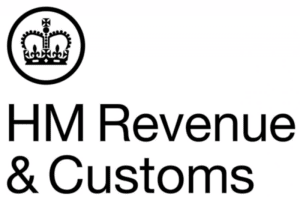Stamp Duty on Shares UK
If you’re just starting out in the world of stocks and shares, you might be surprised to learn that you often need to pay tax on your shares in the form of stamp duty. Therefore, it’s very important to understanding how much stamp duty you pay, whether there are any exemptions, and whether there’s any legal way you can avoid. The good news is that not all investors will be liable for UK stamp duty on shares.
This guide will tell you everything you need to know about paying stamp duty on UK shares. We’ll explain what it is, how much you have to pay, and reveal how you can legally avoid paying stamp duty on shares in the United Kingdom.
What is Stamp Duty on UK Shares?

When you buy shares in the UK you will likely need to pay Stamp Duty Reserve Tax (SDRT). The rate of stamp duty is usually 0.5%, but how and when you pay stamp duty depends on how buy your shares.
Buying Shares Electronically
If you buy shares electronically, ie from an online stock broker via a computer or smartphone, or if you buy from a broker over the phone, then you usually need to pay 0.5% in stamp duty. This is a transaction tax on shares that is taken automatically when you complete the shares transactions.
It’s important to note that the amount of stamp duty you pay on Irish registered stock is 1%.
For example, let’s imagine you buy £10,000 worth of Amazon shares. For this transaction, the amount of stamp duty you’ll pay is £50. As the cost is incorporated into the total purchase price that you pay at your chosen broker, you will likely have £10,050 deducted from your account balance.
If you don’t buy your shares with cash but give something else of value to buy them, you pay stamp duty based on the value of what you gave.
You don’t have to pay any stamp duty tax if you’re given your shares for nothing.
Stock Transfer Form
If you buy shares via a stock transfer form, also known as paper shares, stamp duty is only chargeable for transactions over £1,000. The transaction tax is rounded to the nearest £5. For example, if you buy HSBC shares worth £1,050, you’ll pay 0.5% on this amount which is £5.25. You’ll round this up to £10 to pay in Stamp Duty.
If you’re unaware of what a stock transfer form is, it’s a fairly old fashioned way of buying stocks by which you need to download a form or get it from a lawyer or broker and then send it to HMRC and pay the stamp duty within 30 days of it being signed and dated. While it could potentially save you some money on stamp duty, the extra effort involved means that most investors opt to just pay the 5% stamp duty.
In addition to buying shares electronically and via a stock transfer form, you also pay stamp duty if:
- You buy existing shares in a company incorporated in the UK.
- You buy an option to buy shares.
- You have an interest in shares, for example an interest in the money from selling them.
- You buy shares in a foreign company that has a share register in the UK.
- You have rights arising from shares, for example rights you have when new shares are issued.
- You buy shares ‘off-market’, meaning when there is a transfer of shares outside CREST (the UK electronic settlement system). This requires you to send HMRC a written notice with details of the transaction.
Stamp Duty Exemptions
It is important to note that there are several exceptions to the stamp duty rule.
- If investing in a company listed on the AIM (Alternative Investment Market) you will not be exposed to stamp duty. This is to encourage UK investors to back smaller companies with AIM shares.
- If investing in a company listed outside of the UK – for example, if you buy shares from a stock exchange such as NYSE or NASDAQ, no stamp duty applies.
- If you are given shares for nothing.
- If you subscribe to a new issue of shares in a company.
- If you buy shares in an ‘open ended investment company’ (OEIC) from the fund manager.
- If you buy units in a unit trust from the fund manager.
- If you are buying ETFs.
Stamp Duty on ETFs
ETFs are, in many ways, similar to shares. They’re listed on a stock exchange and are bought and sold just like shares. However, unlike UK equities, ETFs are exempt from stamp duty. This doesn’t mean that ETFs don’t pay stamp duty on shares purchases within their portfolio – they do – but it’s reflected in the price of the ETF rather than being charged to the investor.
Conclusion
To summarise, stamp duty on UK shares is a 0.5% tax that is charged on the majority of share transactions. While there are several exemptions, such as AIM shares, in most cases the 0.5% stamp duty tax will automatically be taken when you complete shares transactions.
However, there is a way around this. Some UK brokers absorb the cost of stamp duty so that you can invest in the stock market without paying that 0.5% tax! they also allow you to buy shares with 0% commission.
FAQs
What is stamp duty on shares?
When you buy shares in a UK company, the broker will need to charge you 0.5% in stamp duty tax. This isn't charged when you sell the shares, only when you buy them. If buying shares in a company listed on the AIM or overseas, no stamp duty is applicable. With that said, an FCA-broker allows you to buy FTSE shares without paying any stamp duty as the platform waves the charge!
Are there other types of tax on shares in the UK?
Yes. When you sell shares, you are liable to pay capital gains tax on money you earn from selling shares. If you invest in dividend stocks, you will also need to pay tax on dividend payments.
What is the capital gains tax rate in the UK?
The basic rate is 10%. However, if you fall under the scope of a higher or additional rate taxpayer, you will pay 20% on your taxable capital gains.
What is the tax allowance on shares?
In the 2020/21 UK tax year, you can make up to £12,300 in capital gains without paying any tax. In terms of your dividend allowance, you can receive up to £2,000 per year tax-free.
Do I still have to pay stamp duty during the coronavirus pandemic?
Yes, there is no relief from stamp duty on shares during the covid pandemic.
